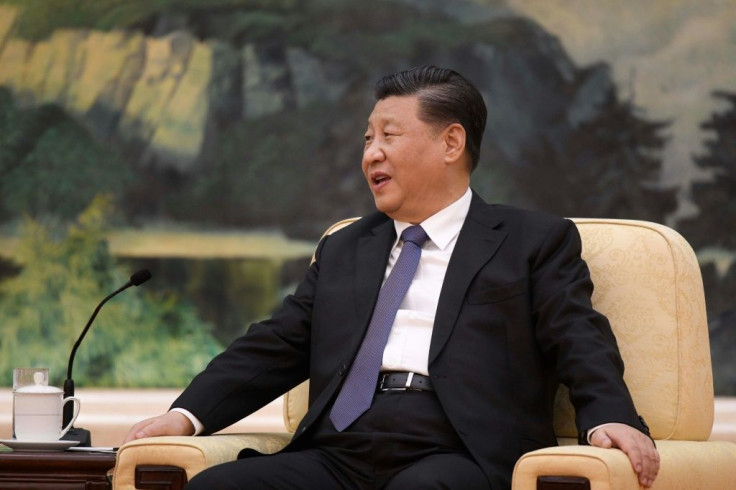CIA Report Says China Threatened WHO Against Declaring Coronavirus A Global Pandemic
With the COVID-19 global death count now approaching 300,000 with over 83,000 from the United States alone, the pressure to get answers from China and the World Health Organization (WHO) about their actions during the early stages of the pandemic is increasing.
Newsweek has confirmed in a exclusive report that, according to a Central Intelligence Agency (CIA) report, China threatened WHO in January it would stop cooperating with any coronavirus investigation if the international agency declared COVID-19 to be a global health emergency. January was when Beijing was stockpiling medical supplies from around the world.
At least one U.S. senator, Tom Cotton, R-Ark., agreed. "There's no question that Xi Jinping and senior officials in the Chinese Communist Party were pressuring the [World Health Organization] all the way back to December to undersell the risk of this virus. Look, they knew in China early on, probably as early as the early days of December, that this virus was both highly contagious among humans and it was very deadly for certain people. Yet they wanted to save face.”
Sen. Cotton made his comments on Fox Business News program "Sunday Morning Futures” on April 10 where he also mentioned another report concerning an October shutdown in the neighborhood of a Wuhan, China, laboratory that some suspect the virus originally escaped from.
Cotton said, "The reports indicate that on major roads around these labs, Wuhan, you obviously had thousands and thousands of cell phones pinging towers day in and day out. And then all of a sudden in October, it stopped, and it remained stopped for several days. That would suggest without any further information that those roads were blocked for some reason. Now we need to go confirm that."
In yet another report, a German intelligence assessment published by Der Spiegel last week accused Chinese President Xi Jinping of personally applying pressure on WHO Director-General Tedros Adhanom Ghebreyesus on Jan.21.
The WHO director’s response to the German report was made through spokesperson Christian Lindmeier, who told Newsweek, "We don't comment on specific discussions with member states but we can say that at all times during the pandemic WHO has acted in accordance with its mandate as an evidence-based technical organization focusing on protecting all people, everywhere. WHO bases its recommendations on science, public health best practices, evidence, data, and the advice of independent experts.”
Lindmeier added, "Dr. Tedros did not communicate with President Xi on Jan 20, 21, or 22. Dr. Tedros and his senior team met with President Xi in Beijing on Jan. 28. The issue of Public Health Emergency of International Concern (PHEIC) did not come up in that meeting."
When the WHO declared a public health emergency Jan.30, Tedros said, "Let me be clear: This declaration is not a vote of no confidence in China. On the contrary, WHO continues to have confidence in China's capacity to control the outbreak.”
According to China's General Administration of Customs, Beijing imported 2.5 billion pieces of epidemic personal protective equipment (PPE) between Jan. 24 and Feb. 29. The spike in orders was accompanied by fervent calls to Beijing's diplomatic missions across the globe to secure supplies.
Many questions remain unanswered, but one of them is: Why was the public health emergency declaration not made earlier instead of waiting until Jan. 30 as China began to stockpile supplies that would leave other countries short as the coronavirus swept the globe?

© Copyright IBTimes 2025. All rights reserved.





















